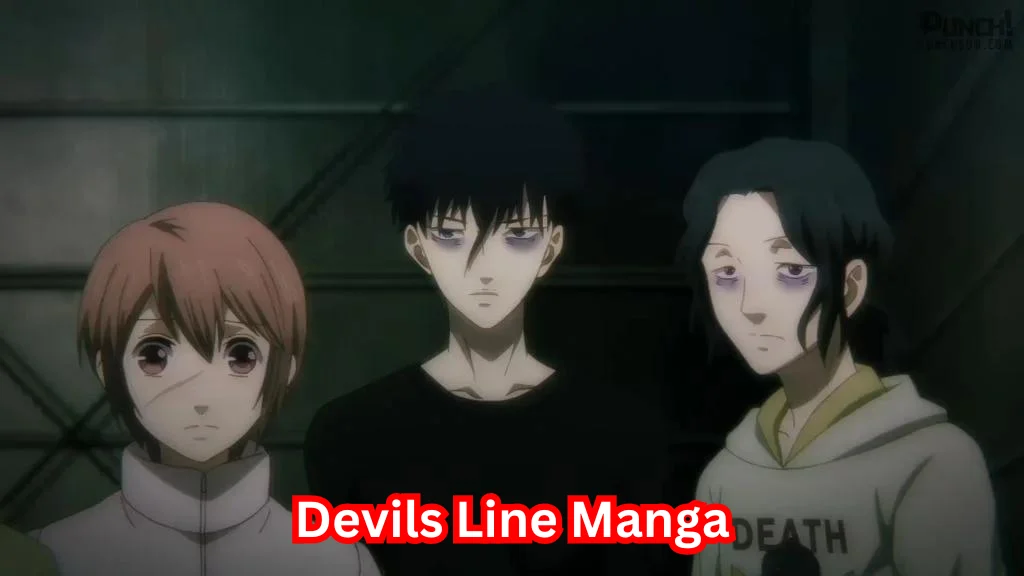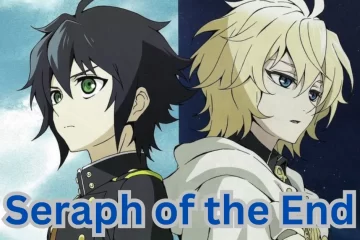In the realm of manga, where tales of supernatural creatures and human conflicts abound, Devil’s Line stands out as a gripping and thought-provoking series. Created by the talented Ryo Hanada, this manga offers a fresh take on the age-old vampire mythos. Set in modern society, it explores the intricate relationships between vampires and humans and delves deep into the themes of discrimination and prejudice. If you’re a fan of dark fantasy and paranormal romance, Devils Line Manga is a must-read.
Ryo Hanada’s Unique Storytelling
At the heart of this manga’s appeal is the remarkable storytelling of its creator, Ryo Hanada. With a unique blend of urban fantasy and supernatural romance, Hanada crafts a narrative that enthralls readers from the very beginning. The characters are complex, multi-dimensional, and relatable, drawing readers into their world and making them care about their fates. The storytelling is not just about bloodsuckers in manga; it’s a powerful exploration of the human condition and the fine line between darkness and light.
Vampires and Humans: The Central Conflict
“Devil’s Line” shines as it presents the central conflict of coexistence between vampires and humans. In a world where vampires are part of society, the manga delves into the challenges, prejudices, and secrets that come with this unique integration. Yuuki Anzai, a half-vampire, and Tsukasa Taira, a human, are at the forefront of this struggle, and their relationship forms the core of the story. Hanada masterfully captures the intricacies of vampire-human dynamics, weaving a tale of love, fear, and hope.
You may also like Seraph Of The End Manga.
Character Dynamics in Devil’s Line
The characters in Devil’s Line are not your typical one-dimensional portrayals. Hanada delves into their backgrounds, desires, and internal conflicts, making them incredibly relatable. Yuuki Anzai’s struggle with his vampiric instincts and Tsukasa Taira’s unwavering support provide a rich backdrop for the narrative. Supporting characters like members of the F Squad and CCC (Center for Countermeasure of Crimson) contribute to the manga’s depth, making the reader’s emotional investment in their fates all the more intense.
The Role of F Squad in the Series
F Squad, the special police force in Devil’s Line, plays a crucial role in maintaining the balance between vampires and humans. Comprised of both vampires and humans, their duty is to handle cases involving vampire-related crimes. The manga brilliantly explores the challenges faced by this team as they strive to keep the peace and solve cases related to vampirism. The dynamics within F Squad add layers of complexity to the story and keep readers engaged.
Themes of Discrimination and Prejudice
One of the most powerful aspects of Devil’s Line is its unflinching examination of discrimination and prejudice. Through the lens of vampire-human relations, the manga exposes the inherent biases in society. It raises questions about acceptance, coexistence, and the consequences of discrimination. This thematic exploration elevates Devil’s Line beyond a typical supernatural romance and transforms it into a socially relevant and thought-provoking work of art.
The Anime Adaptation of Devil’s Line
The success and popularity of Devil’s Line extended beyond the manga, leading to an anime adaptation. This adaptation brought the world of Anzai, Taira, and the complex vampire-human coexistence to life in a visual and auditory feast. While the anime follows the source material closely, it also introduces the story to a broader audience, garnering even more fans and appreciation for Ryo Hanada’s creation.
Dark Fantasy and Urban Setting
The backdrop of Tokyo provides a perfect urban setting for Devil’s Line. It’s a city filled with shadows and secrets, offering an ideal stage for the dark fantasy themes of the manga. The cityscape is not just a location but a character in itself, contributing to the atmosphere and tension within the story. The urban setting grounds the supernatural elements, making them even more impactful.
Evolution of Vampire Lore in the Manga
Vampire lore is a central theme in Devil’s Line. Hanada doesn’t just rely on the traditional aspects of vampirism but introduces innovative elements that add depth and complexity to the vampires in the story. This evolution of vampire lore is a testament to the creator’s commitment to crafting a unique narrative. It keeps readers guessing and invested in the world of Devil’s Line.
Reception and Impact of Devils Line Manga
Devil’s Line has left a lasting impact on the manga and anime community. It’s praised for its well-developed characters, intricate plot, and exploration of societal issues. The series has garnered a dedicated fanbase that connects with the characters and themes on a deep level. Its resonance goes beyond mere entertainment, as it encourages discussions about prejudice and acceptance in real life.
Conclusion
Devil’s Line is a standout in the world of manga, thanks to Ryo Hanada’s exceptional storytelling, its exploration of vampire-human coexistence, and its unflinching look at discrimination. The characters, led by Yuuki Anzai and Tsukasa Taira, are brilliantly crafted, and F Squad adds an extra layer of intrigue. The anime adaptation has only broadened its reach and impact. If you’re seeking a dark fantasy manga with depth, emotion, and social commentary, Devil’s Line is a must-read. It’s more than just a vampire-themed manga; it’s a compelling narrative that will leave you pondering its themes long after you’ve turned the final page.



